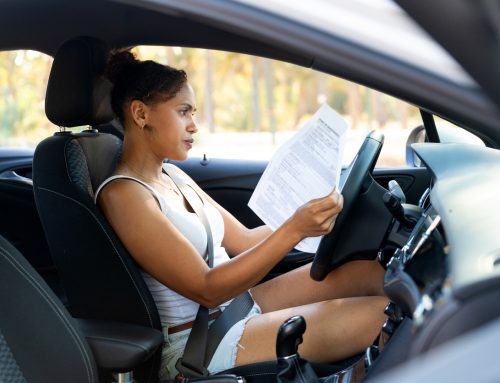Summer is the perfect time for road trips, offering a chance to explore new destinations and create unforgettable memories. However, with the increase in travel during the warmer months, the risk of personal injury also rises. To ensure a safe and enjoyable journey, it’s essential to take certain precautions. Here are some vital safety tips to prevent personal injury while enjoying your summer road trips.
Pre-Trip Vehicle Inspection:
Before hitting the road, it’s crucial to perform a thorough inspection of your vehicle. This can prevent unexpected breakdowns and accidents caused by vehicle malfunctions.
- Check Tire Pressure and Tread: Ensure your tires are properly inflated and have sufficient tread depth. Under-inflated tires can overheat and blow out, while worn-out treads reduce traction, especially on wet roads. Use a tire gauge to check pressure and a penny to check tread depth (if the top of Lincoln’s head is visible, it’s time to replace your tires).
- Inspect Oil Levels and Other Fluids: Regularly check and top up your vehicle’s oil, coolant, brake fluid, and windshield washer fluid. Proper fluid levels are essential for smooth and safe operation. Schedule an oil change if it’s due and make sure your coolant levels are sufficient to prevent overheating.
- Examine Brakes and Lights: Make sure your brakes are responsive and your lights, including headlights, taillights, and turn signals, are functioning correctly. These are crucial for visibility and safety, especially at night or in adverse weather conditions. Listen for any unusual sounds when braking and check that your brake pads have enough thickness.
- Air Conditioning System: A working air conditioning system is not just for comfort but also for safety. Overheating can lead to dehydration and heat-related illnesses, which can impair driving ability. If your AC is not blowing cold air, have it inspected by a professional.
Safe Driving Practices:
Practicing safe driving is essential to avoid accidents and ensure the safety of all passengers.
- Avoid Distracted Driving: Keep your focus on the road. Avoid using mobile devices, eating, or engaging in any activity that takes your attention away from driving. Use hands-free devices for calls and set your GPS before you start driving.
- Plan for Regular Breaks: Fatigue is a significant risk factor on long trips. Plan to take breaks every two hours to rest and stretch. This helps maintain alertness and reduces the risk of accidents. Consider rotating drivers if possible.
- Observe Speed Limits and Traffic Laws: Adhere to speed limits and follow traffic rules. Speeding and reckless driving increase the likelihood of accidents and severe injuries. Remember that speed limits are designed for optimal safety conditions.
Emergency Preparedness:
Being prepared for emergencies can make a significant difference in case of an unexpected situation.
- Emergency Kit: Keep an emergency kit in your vehicle, including first aid supplies, a flashlight, jumper cables, basic tools, water, and non-perishable food items. Include a blanket, extra batteries, and a portable phone charger as well.
- Roadside Assistance: Know how to contact your roadside assistance service. Having a plan in place for flat tires, dead batteries, or other breakdowns can save time and reduce stress. Keep the number handy and make sure your membership is up to date.
Navigating Heavy Traffic and Construction Zones:
Summer often brings increased traffic and construction projects. Navigating these safely is crucial.
- Stay Calm in Traffic: Heavy traffic can be frustrating, but maintaining calm and patience is essential. Aggressive driving increases the risk of accidents. Use traffic apps to find less congested routes and leave early to allow extra travel time.
- Follow Construction Zone Rules: Slow down and follow posted signs in construction zones. Workers and equipment can create unexpected hazards, and fines for violations are often doubled in these areas. Be especially alert for sudden lane shifts or changes in traffic patterns.
Hydration and Sun Protection:
Staying hydrated and protecting yourself from the sun are vital for maintaining your health during summer trips.
- Drink Plenty of Water: Keep hydrated to prevent heat exhaustion. Carry enough water for all passengers and take regular sips, especially on hot days. Avoid caffeinated or sugary drinks as they can dehydrate you.
- Use Sun Protection: Apply sunscreen and wear sunglasses to protect against harmful UV rays. Sunburn and glare can impair your driving ability and comfort. Wear a hat and light-colored clothing to keep cool.
By following these safety tips, you can significantly reduce the risk of personal injury and ensure a pleasant and safe summer road trip experience. If you or a loved one is involved in an accident due to someone else’s negligence, don’t hesitate to seek legal assistance. Contact Reid Law Group today for a free consultation and let our experienced team help you navigate your personal injury claim.







